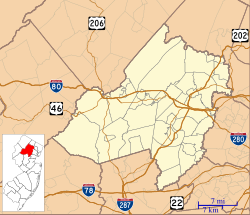|
United States Army 4039
United States Army 4039 is an preserved 0-6-0 "Switcher" type steam locomotive. Built in 1942 for the U.S. Army, it was retired in 1963 and set aside for preservation. Sold to the Morris County Central Railroad in 1965, it hauled excursions until 1980 when her flu time expired. Sitting in storage for nearly 14 years, she was bought by the Whippany Railroad Museum in 1994 to cosmetically restore the engine. In 2015, the museum officials expressed interests for restoring the engine to working order for use on local railroads. As of 2025, the engine is currently being restored to operational condition. HistoryThe locomotive was built by the American Locomotive Company in November 1942 for the U.S. War Department.[3] The locomotive is an S155 class 0-6-0 "Switching"-type built for Standard gauge track. The intended use of the locomotive was for U.S. military service in the Far East, Africa and Europe, but instead was used for switching operations for military bases within the United States during World War II.[4] After World War II the locomotive was no longer needed by the War Department and was sold to the Virginia Blue Ridge Railway on February 17, 1947.[3] The locomotive was used in freight operations until August 1, 1963 when it was retired from revenue service, after that, the Virginia Blue Ridge Railway made the change over to diesel locomotives.[4][3] In 1965, the locomotive was sold to the Morris County Central Railroad were it was converted to burn oil and was restored on August 27, 1966 and used for passenger rail excursions.[3] The locomotive's last run was on December 14, 1980, between Newfoundland and Stockholm, New Jersey. The Whippany Railway Museum acquired the locomotive on May 7, 1994, and cosmetically restored it for static display. The Morris County Board of Chosen Freeholders adopted a Resolution designating the locomotive "The Official Steam Locomotive of Morris County" on January 26, 1997.[4] As of 2024, the engine is currently undergoing restoration to operating condition where, when restored, it will run primarily on local area railroads.[4][3] See also
References
|
||||||||||||||||||||||||||||||||||||||||||||||||||||||||||||||||||||||||||||||||||||||



